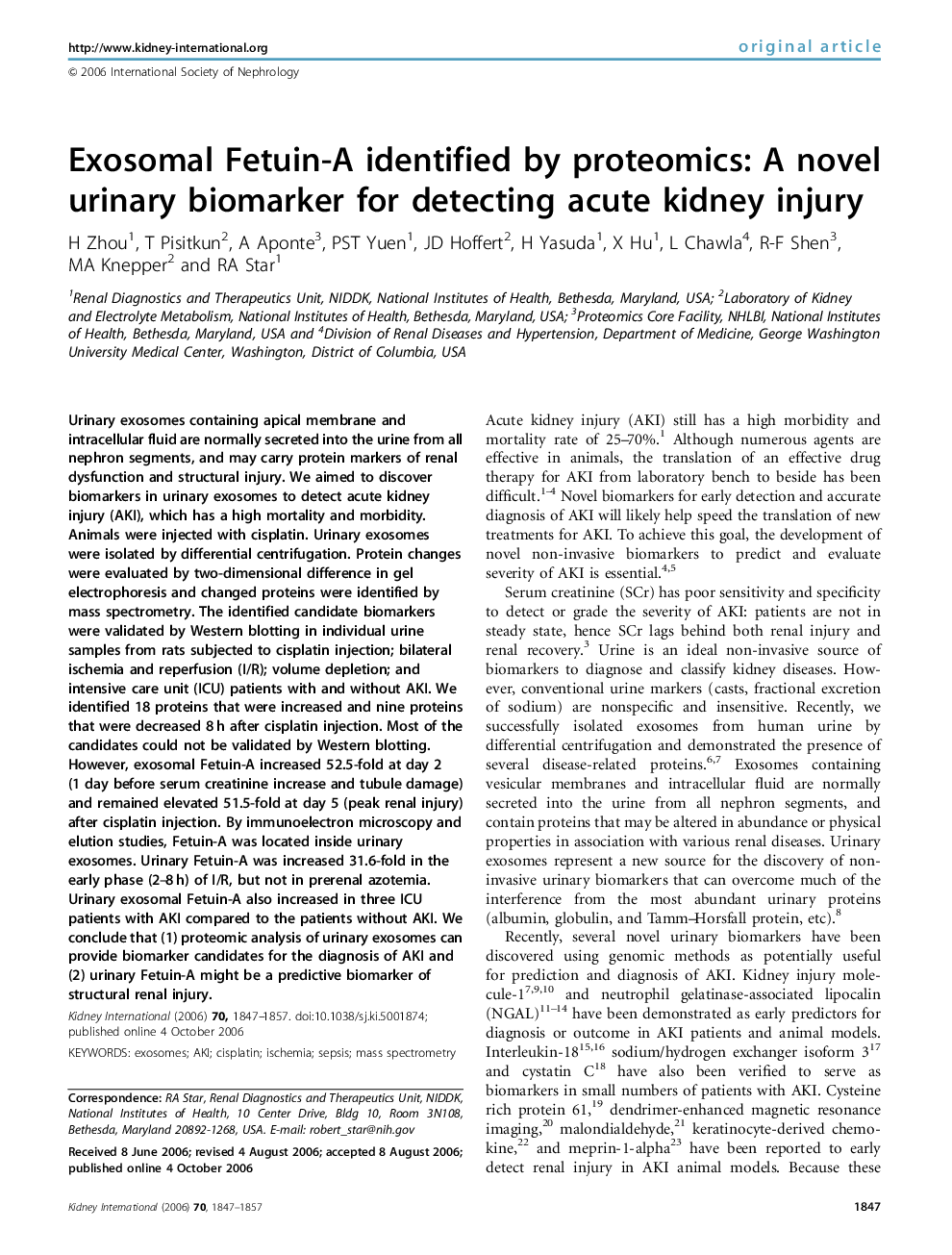| Article ID | Journal | Published Year | Pages | File Type |
|---|---|---|---|---|
| 3887681 | Kidney International | 2006 | 11 Pages |
Urinary exosomes containing apical membrane and intracellular fluid are normally secreted into the urine from all nephron segments, and may carry protein markers of renal dysfunction and structural injury. We aimed to discover biomarkers in urinary exosomes to detect acute kidney injury (AKI), which has a high mortality and morbidity. Animals were injected with cisplatin. Urinary exosomes were isolated by differential centrifugation. Protein changes were evaluated by two-dimensional difference in gel electrophoresis and changed proteins were identified by mass spectrometry. The identified candidate biomarkers were validated by Western blotting in individual urine samples from rats subjected to cisplatin injection; bilateral ischemia and reperfusion (I/R); volume depletion; and intensive care unit (ICU) patients with and without AKI. We identified 18 proteins that were increased and nine proteins that were decreased 8 h after cisplatin injection. Most of the candidates could not be validated by Western blotting. However, exosomal Fetuin-A increased 52.5-fold at day 2 (1 day before serum creatinine increase and tubule damage) and remained elevated 51.5-fold at day 5 (peak renal injury) after cisplatin injection. By immunoelectron microscopy and elution studies, Fetuin-A was located inside urinary exosomes. Urinary Fetuin-A was increased 31.6-fold in the early phase (2–8 h) of I/R, but not in prerenal azotemia. Urinary exosomal Fetuin-A also increased in three ICU patients with AKI compared to the patients without AKI. We conclude that (1) proteomic analysis of urinary exosomes can provide biomarker candidates for the diagnosis of AKI and (2) urinary Fetuin-A might be a predictive biomarker of structural renal injury.
